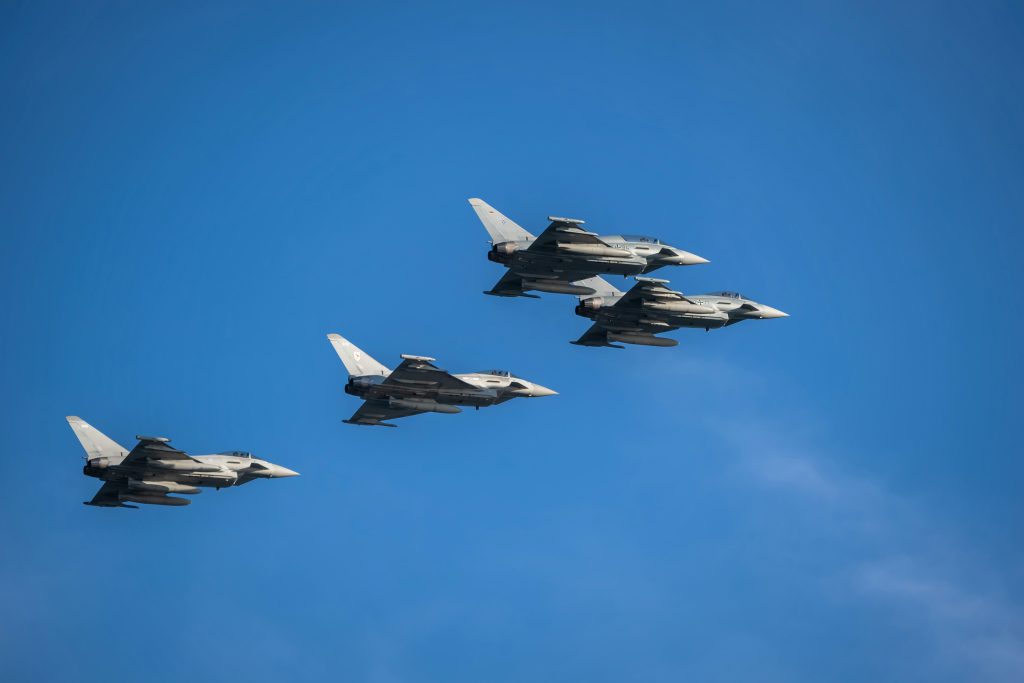[FR] European defence: A revival and some nuances

After lying dormant since the beginning of the decade, the European Security and Defence Policy (ESDP) has regained its place as a priority on the agenda of European leaders. Among the latest notable initiatives is, for example, the launch of a European defence fund, theoretically endowed with €5 billion per year after 2020. However, is this just another flash in the pan, or have we entered a new, fruitful and sustainable dynamic in terms of security and defence?
The factors favouring a revival of the CSDP are solid, starting withthe continuing deterioration of the strategic environment: the Union is facing multiple, long-lasting crises with no obvious or quick solution. Threats come from traditional power struggles, with Russia seeking to perpetuate a grey area of conflict and insecurity between itself and the EU. They also come from southern states in the Middle East and the Sahel region, which are plagued by violent civil wars and state collapse. The continuum between internal and external security adds a further challenge: terrorism is in fact the manifestation in Europe of unresolved conflicts outside Europe. All European countries are equally vulnerable to cyberattacks. Finally, for the past three years, hundreds of thousands of refugees have been fleeing wars in the South to seek asylum on the continent, fuelling xenophobic and populist movements that could undermine the very foundations of democracy.
Added to these worrying strategic developments are the series of political earthquakes of 2016: Brexit was both a shock and a catalyst for voluntarism among the 27, who were aware of the need for a general revival of European integration. In terms of defence, Brexit has created a more favourable context, insofar as it removes the British veto that has been almost systematic since 2003. The election of Donald Trump ushered in a period of Euro-American mistrust which, without calling NATO into question, confirmed the urgent need for Europeans to ensure greater strategic autonomy. The rise of Europhobia among the general public is forcing governments to take the demands of European citizens very seriously: they now make security a political priority and demand visible results on border protection, the fight against terrorism and Europe’s role on the international stage. The economic crisis, which has weighed heavily on public budgets since 2010, is on the verge of being resolved, allowing for renewed investment in defence. Finally, Emmanuel Macron’s France has regained its traditional role as defender and promoter of a credible and effective European defence.
All these factors have made it possible to unlock a series of new initiatives: the creation of a military planning and command capacity for certain crisis management operations (a kind of mini European HQ); the creation of a border and coast guard corps to combat smugglers and assist in the rescue of refugees at sea (Frontex); the creation of the European Defence Fund and the establishment of a programme to support the development of military capabilities from 2019 onwards; adoption, by 25 of the 27 Member States, of Permanent Structured Cooperation (PESCO), which allows for the creation of core groups; creation of a Coordinated Annual Review on Defence (CARD) to strengthen opportunities for capability cooperation between Member States; common financing system for capabilities, in particular Battle Groups; Finally, the long-taboo notion of ‘strategic autonomy’ has become commonplace in all European texts. This is undeniably a significant and convincing effort, all achieved in just over a year.
However, some caution is warranted at this stage.
- European defence cannot be revived by focusing initiatives and funding on the defence market and industry. Only seven or eight countries have a significant military industry, and there is therefore a risk that this funding will be seen as unfair, because it favours only a small number of countries. Furthermore, industrial-led recovery is an old European idea, tried several times since the 1970s, which has never been successful: no cooperation between manufacturers can replace the political will of governments. in 2012, the agreement between EADS and British Aerospace was concluded between manufacturers, but it collapsed due to the German government’s negative decision.
- The European Commission’s defence recovery plan is fraught with contradictions. Because the Treaty does not give it competence in this area, the Commission’s initiatives are always double-edged: necessary because they are decisive in terms of funding, but delicate because they are likely to break the rule of intergovernmental control over defence issues. If the risk of “communitarisation” of the CSDP became too great, a number of states would certainly oppose it.
- On a technical level, success may also be an obstacle. It is good to introduce flexibility into the CSDP through permanent structured cooperation. But will a core group of 25 be more effective than a council of 27?
- Politically speaking, what citizens want is not so much competitive defence capabilities or industries. What they want is immediate security and secure borders. They want genuine cooperation in the fight against terrorism. They expect Europe to play an effective role in resolving the crises in the South, which fuel terrorism and refugee flows, and in protecting them from the Russian threat. Not in 2020, but as soon as possible.
- In other words, strategically speaking, the great risk would be to maintain European defence as a technical, military, industrial and capability policy, decoupled from diplomatic initiatives for a lasting solution to the crises affecting the EU. The urgent question must remain that of the purpose of all these efforts: what is the point of a common defence? What solution for the Levant, what stabilisation for the Sahel? How can we develop a common strategic culture, a common vision of the world and of the EU’s role in the crises of this world? It is urgent that these preliminary questions, as well as the technical aspects, be included on the agenda of European heads of state and government.




